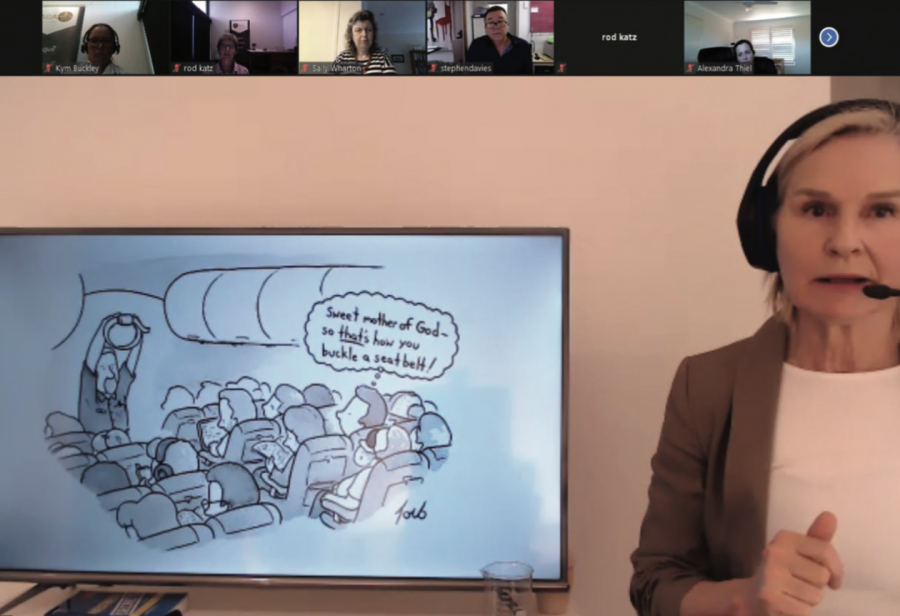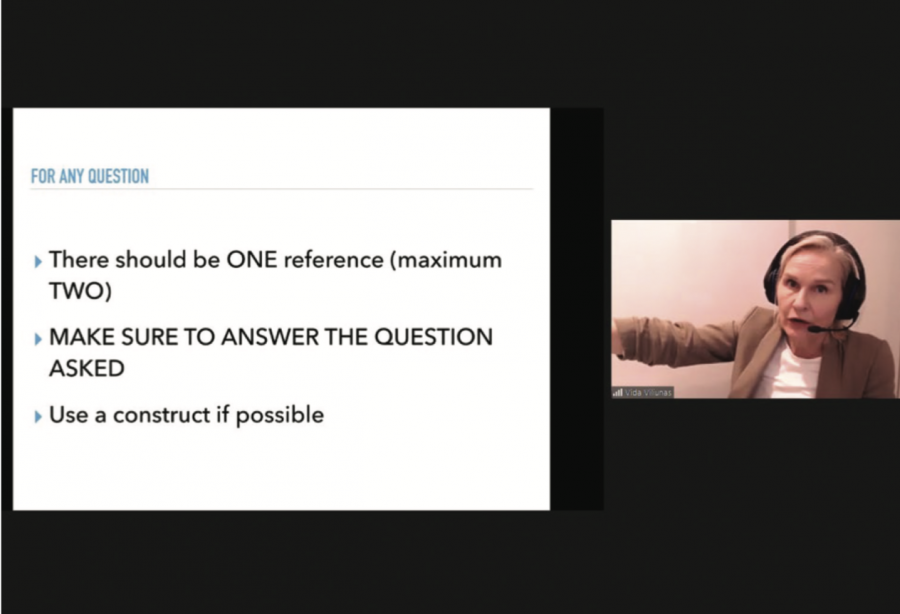Yes, it was epic. The annual ASA exam preparation weekend had a substantial re-work to accommodate a new exam format for those candidates who sat the written section in March (and who will not have medical vivas with patients) and a new boot camp format via Zoom.

The registrants were surveyed prior to the weekend to find out about their expectations, special requests and exam cohort. There was an approximately 50:50 split between those from 2020-1 and those preparing for 2020-2 and beyond, together with a number of International Medical Graduate Specialists.

PREPARATIONS AND LOGISTICS
Many hours were dedicated to the question of how to engage a group of close to 90 people via Zoom. Ultimately, the obvious choice was to create ‘Hollywood in the Home’. This allowed a combination of TED-talk style and screen-shared presentations. As always with Zoom, pants were optional but candidates were asked to try out the rest of their exam wardrobes on-screen.
An extended ‘arrival window’ at the beginning of each day was an opportunity to chat and meet individual participants and gave the weekend a personal feel. Candidates were encouraged to commit to the weekend as if they were in a lecture – without distractions or phones, and with Zoom cameras and exam-brains on.
PRESENTERS AND OTHER SUPPORTERS
Thank you to the examiners who participated in the exam panel. They answered candidate questions and provided commentary on the ingredients of good and great exam performances. Dr Steve Davies, Dr Nicola Meares, Dr Carmel McInerney, Dr Prani Shrivastava and Dr Sally Wharton volunteered their time, experience and knowledge of what appeals to examiners and what garners extra marks.
Sunday morning with the Final Exam Chair Dr Sharon Tivey was another opportunity to clarify the exam process for candidates. All participants gained insights into the diabolically difficult jobs of conducting exams, training, and studying during a pandemic.
The weekend would not have been possible without my co-hosts Dr Rod Katz and ASA office super-hero Kym Buckley. They co-ordinated chat responses, answered private questions and ensured the smooth running of the production.
EXAM SECTIONS
Each exam section (MCQs, SAQs and Vivas) was addressed and ingredients for success outlined.
For multiple choice questions the tips were mainly straightforward. Since there is no negative marking, each question should be answered. Strict timing is important to allow review of all responses.
The short answer questions are a test of knowledge, reasoning and communication skills. This is a demanding section for which strict timing is essential and a construct is helpful. Writing less, writing legibly with all abbreviations explained was stressed. Practicing questions to time and having responses assessed is key.

Every year, examiner reports repeat the importance of answering the question asked. Techniques to ensure that the precise questions are answered were discussed.
Viva deconstruction, viva creation, practicing in sections, role-playing
as examiners and video review were suggested techniques to improve viva performance.
It is important to systematically interpret investigations (for the exam as well as professional life). This demonstrates understanding and competence.
The examiners stressed that the entire curriculum was examinable in all sections of the exam including the vivas.
How to manage ‘viva-brain’: what to do and what not to do when a candidate is faltering or uncertain were part of recovery techniques discussed.
STUDY TECHNIQUE
Most examiners are active clinicians. Candidates should not make the mistake of thinking that time spent in operating theatres and other clinical activities is not useful exam preparation.
The value of a range of techniques including individual and group study,
a study plan that covers the entire curriculum and practicing past questions under exam conditions was stressed as an important part of exam success.
POST EPIC
Details of EPIC participants were shared after the weekend. This is intended to help candidates in things such as forming study groups and developing and sharing practice questions. One of the points that was made through the weekend was that there is a real benefit to collaborating and no real downside. The exams are intended to test judgement and knowledge and
not designed to rank candidates. A higher success rate reflects well on candidates, examiners and teachers. Collaboration and working together will also be of benefit through post-exam professional life.
MORE INTELLIGENCE
Artificial intelligence expert Patrick Winston of MIT created an excellent lecture series on how to speak
Professor Winston’s suggestion of an empowering promise was embedded in the plan for our weekend. All candidates were promised extra marks if they engaged and concentrated during the two days. Candidates listed what they learned that would most help them to earn those extra marks in the chat at the end of each day. That summary of what was meaningful to candidates also informed the lecture series for the future. However, we all agreed that we will never do it again… until next year.